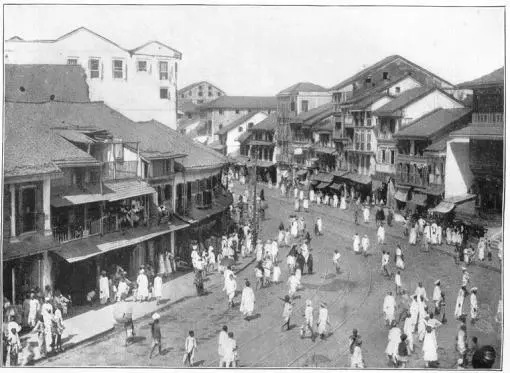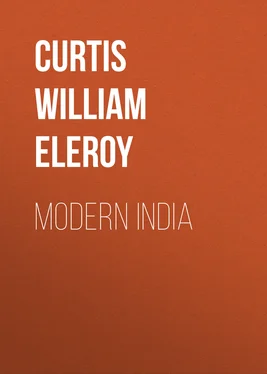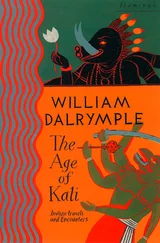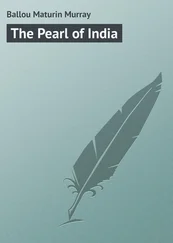William Curtis - Modern India
Здесь есть возможность читать онлайн «William Curtis - Modern India» — ознакомительный отрывок электронной книги совершенно бесплатно, а после прочтения отрывка купить полную версию. В некоторых случаях можно слушать аудио, скачать через торрент в формате fb2 и присутствует краткое содержание. Жанр: Путешествия и география, История, foreign_edu, foreign_antique, foreign_prose, на английском языке. Описание произведения, (предисловие) а так же отзывы посетителей доступны на портале библиотеки ЛибКат.
- Название:Modern India
- Автор:
- Жанр:
- Год:неизвестен
- ISBN:нет данных
- Рейтинг книги:4 / 5. Голосов: 1
-
Избранное:Добавить в избранное
- Отзывы:
-
Ваша оценка:
- 80
- 1
- 2
- 3
- 4
- 5
Modern India: краткое содержание, описание и аннотация
Предлагаем к чтению аннотацию, описание, краткое содержание или предисловие (зависит от того, что написал сам автор книги «Modern India»). Если вы не нашли необходимую информацию о книге — напишите в комментариях, мы постараемся отыскать её.
Modern India — читать онлайн ознакомительный отрывок
Ниже представлен текст книги, разбитый по страницам. Система сохранения места последней прочитанной страницы, позволяет с удобством читать онлайн бесплатно книгу «Modern India», без необходимости каждый раз заново искать на чём Вы остановились. Поставьте закладку, и сможете в любой момент перейти на страницу, на которой закончили чтение.
Интервал:
Закладка:
Another distinguished passenger was Sir Cowasji Jehangir Readymoney, an Indian baronet, who inherited immense wealth from a long line of Parsee bankers. They have adopted as a sort of trademark, a nickname given by some wag to the founder of the family, in the last century because of his immense fortune and success in trade. Mr. Readymoney, or Sir Jehangir, as he is commonly known, the present head of the house, was accompanied by his wife, two daughters, their governess, and his son, who had been spending several months in London, where he had been the object of much gratifying attention. His father received his title as an acknowledgment of his generosity in presenting $250,000 to the Indian Institute in London, and for other public benefactions, estimated at $1,300,000. He built colleges, hospitals, insane asylums and other institutions. He founded a Strangers' Home at Bombay for the refuge of people of respectability who find themselves destitute or friendless or become ill in that city. He erected drinking fountains of artistic architecture at several convenient places in Bombay, and gave enormous sums to various charities in London and elsewhere without respect to race or creed. Both the Roman Catholic and the Presbyterian missions in India have been the recipients of large gifts, and the university at Bombay owes him for its finest building.

A BOMBAY STREET
Several of the most prominent native families in India have followed the example of Mr. Readymoney by adopting the nicknames that were given their ancestors. Indian names are difficult to pronounce. What, for example, would you call Mr. Jamshijdji or Mr. Jijibhai, and those are comparatively simple? Hence, in early times it was the habit of foreigners to call the natives with whom they came in contact by names that were appropriate to their character or their business. For example, "Mr. Reporter," one of the editors of the Times of India, as his father was before him, is known honorably by a name given by people who were unable to pronounce his father's Indian name.
Sir Jamsetjed Jeejeebhoy, one of the most prominent and wealthy Parsees, who is known all over India for his integrity and enterprise, and has given millions of dollars to colleges, schools, hospitals, asylums and other charities, is commonly known as Mr. Bottlewaller. "Waller" is the native word for trader, and his grandfather was engaged in selling and manufacturing bottles. He began by picking up empty soda and brandy bottles about the saloons, clubs and hotels, and in that humble way laid the foundation of an immense fortune and a reputation that any man might envy. The family have always signed their letters and checks "Bottlewaller," and have been known by that name in business and society. But when Queen Victoria made the grandfather a baronet because of distinguished services, the title was conferred upon Jamsetjed Jeejeebhoy, which was his lawful name.
Another similar case is that of the Petit family, one of the richest in India and the owners and occupants of the finest palaces in Bombay. Their ancestor, or the first of the family who distinguished himself, was a man of very small stature, almost a dwarf, who was known as Le Petit. He accepted the christening and bore the name honorably, as his sons and grandsons have since done. They are now baronets, but have never dropped it, and the present head of the house is Sir Manockji Petit.
The Eye of India, as Bombay is called, sits on an island facing the Arabian Sea on one side and a large bay on the other, but the water is quite shallow, except where channels have been dredged to the docks. The scenery is not attractive. Low hills rise in a semicircle from the horizon, half concealed by a curtain of mist, and a few green islands scattered about promiscuously are occupied by hospitals, military barracks, villas and plantations. Nor is the harbor impressive. It is not worth description, but the pile of buildings which rises on the city side as the steamer approaches its dock is imposing, being a picturesque mingling of oriental and European architecture. Indeed, I do not know of any city that presents a braver front to those who arrive by sea. At the upper end, which you see first, is a group of five-story apartment houses, with oriental balconies and colonnades. Then comes a monstrous new hotel, built by a stock company under the direction of the late J. N. Tata, a Parsee merchant who visited the United States several times and obtained his inspirations and many of his ideas there. Beside the hotel rise the buildings of the yacht club, a hospitable association of Englishmen, to which natives, no matter how great and good they may be, are never admitted. Connected with the club is an apartment house for gentlemen, and so hospitable are the members that a traveler can secure quarters there without difficulty if he brings a letter of introduction.
Next toward the docks is an old castle whose gray and lichen-covered walls are a striking contrast to the new modern buildings that surround it. These walls inclose a considerable area, which by courtesy is called a fort. It was a formidable defense at one time, and has been the scene of much exciting history, but is obsolete now. The walls are of heavy masonry, but a shot from a modern gun would shatter them. They inclose the military headquarters of the Bombay province, or Presidency, as it is called in the Indian gazetteer, the cathedral of this diocese, quarters and barracks for the garrison, an arsenal, magazines and other military buildings and a palatial sailors' home, one of the finest and largest institution of the kind in the world, which is supported by contributions from the various shipping companies that patronize this place. There are also several machine shops, factories and warehouses which contain vast stores of war material of every sort sufficient to equip an army at a fortnight's notice. About twelve hundred men are constantly employed in the arsenal and shops making and repairing military arms and equipments. There is a museum of ancient weapons, and many which were captured from the natives in the early days of India's occupation are quite curious; and there the visitor will have his first view of one of the greatest wonders of nature, a banyan tree, which drops its branches to take root in the soil beneath its over-spreading boughs. But you must wait until you get to Calcutta before you can see the best specimens.
Читать дальшеИнтервал:
Закладка:
Похожие книги на «Modern India»
Представляем Вашему вниманию похожие книги на «Modern India» списком для выбора. Мы отобрали схожую по названию и смыслу литературу в надежде предоставить читателям больше вариантов отыскать новые, интересные, ещё непрочитанные произведения.
Обсуждение, отзывы о книге «Modern India» и просто собственные мнения читателей. Оставьте ваши комментарии, напишите, что Вы думаете о произведении, его смысле или главных героях. Укажите что конкретно понравилось, а что нет, и почему Вы так считаете.












